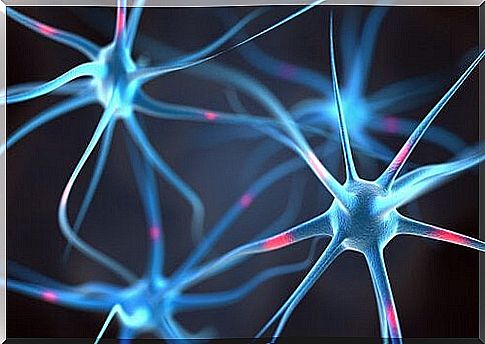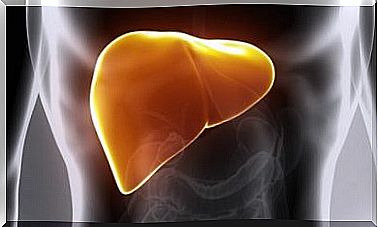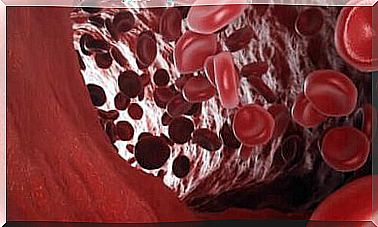The Risks Of Vitamin Deficiency
Vitamin deficiencies cause the development of diseases associated with these deficiencies. These illnesses can sometimes be serious or become chronic.

Find out below which are the most important vitamins for the body and how vitamin deficiency affects our health.
A balanced diet provides the amount of energy the body needs to function properly, in addition to providing basic nutrients to prevent certain diseases.
The risks of vitamin deficiency are numerous. Therefore, it is important to ensure that our daily diet always contains the most important vitamins.
A good diet includes essential and non-essential nutrients. Vitamins cannot be missing from our diet. The term “vitamin” comes from the Latin “vita” which means life and the suffix “amine”, which means that they are vital to the organism.
The main risk of lack of vitamins is to provoke the development of diseases related to these deficiencies. These occur when there is a deficit that the body cannot supply on its own.
Some of these illnesses can be serious and become chronic. For this reason, it is essential to avoid vitamin deficiencies.
The risks of B-complex vitamin deficiency
The B complex is a group that brings together eight vitamins. All of these vitamins influence cell metabolism and are associated with the nervous system. A deficiency in the B complex vitamins can become very dangerous in many cases.
Here are the most important risks of B vitamin deficiency:
- Vitamin B1 or Thiamine. Its deficiency can cause a person to be affected by the neurological disease called “beriberi”. This can lead to cardiovascular problems.
- Vitamin B2 or Riboflavin. Its deficit causes problems in the mucous membranes, such as dryness of the eye, constant tearing, inflammation of the tongue, etc.
- Vitamin B3 or Niacin. The lack of this vitamin causes a serious illness called “pellagra”.
- Vitamin B5 or Pantothenic acid. Its deficiency leads to neurological, dermatological and gastrointestinal problems.
- Vitamin B6 or Pyridoxine. The lack of this vitamin causes digestive or nervous problems, when it does not have a normal level.
- Vitamin B9 or Folic acid. Lack of this vitamin can trigger megaloblastic anemia. It also affects growth and normal mental development.
- Vitamin B8 or Biotin. When this vitamin is not sufficient there is a risk of suffering from dermatitis and gastrointestinal, nervous and muscle problems.
- Vitamin B12 or Cobalamin. Its deficiency causes pernicious anemia as well as blood and neuromuscular problems.
Vitamin C deficiency
Lack of vitamin C can trigger a condition called “scurvy”. This disease is characterized by the weakening and bleeding gums. In the medium term it causes the loss of teeth.
Vitamin C deficiency can also produce anemia, changes in the skin and hair. It is usual for it to give rise to hemorrhages and at the same time cause difficulty in healing wounds.
Lack of vitamin D
Lack of vitamin D often causes a condition called osteomalacia. It is a bone problem, very similar to rickets. This disease is very characteristic because it ends up making the bones extremely fragile.
Many researchers suspect that a lack of vitamin D also affects several types of cancer. There is some evidence for a relationship between vitamin D deficiency and cancer of the ovary, prostate, breast and colon.
It is also common for people who do not have a good level of vitamin D to suffer from chronic fatigue and autoimmune diseases. The most common conditions are type 1 diabetes, multiple sclerosis, affective disorders, arthritis, etc.
Vitamin E deficiency
The risks associated with lack of vitamin E are very serious. Although vitamin E deficiency is not common, if it does occur it causes serious consequences.
Vitamin E insufficiency usually occurs in the following three cases:
- When a person suffers from metabolic diseases such as cystic fibrosis and celiac disease, among others.
- If a baby is born prematurely and has a very low weight.
- In the event that there is a genetic defect.
Lack of vitamin E causes neurological problems. It also produces a feeling of tiredness and weakness, as well as anemia. It is suspected that there is a relationship between the deficiency of this vitamin and infertility.
Lack of vitamins K and A
These two vitamins are also important nutrients for the body. Vitamin K is also known as the “antihemorrhagic vitamin”. As its name suggests, it participates in the processes of coagulation and stopping bleeding. That is why his deficit is causing serious problems.
Moreover, vitamin K deficiency causes difficulties in bone development and malformations in the bone system. On the other hand, the lack of vitamin K also influences the concentration of insoluble salts in the walls of the arteries.
Vitamin A deficiency is not common. However, when it does occur, it results in limitations in vision and even blindness. Vitamin A also influences skin problems as well as the growth and development of children.
Vitamin K plays a very important role in the synthesis of proteins related to blood clotting, so its deficiency can lead, among other things, to stroke.









